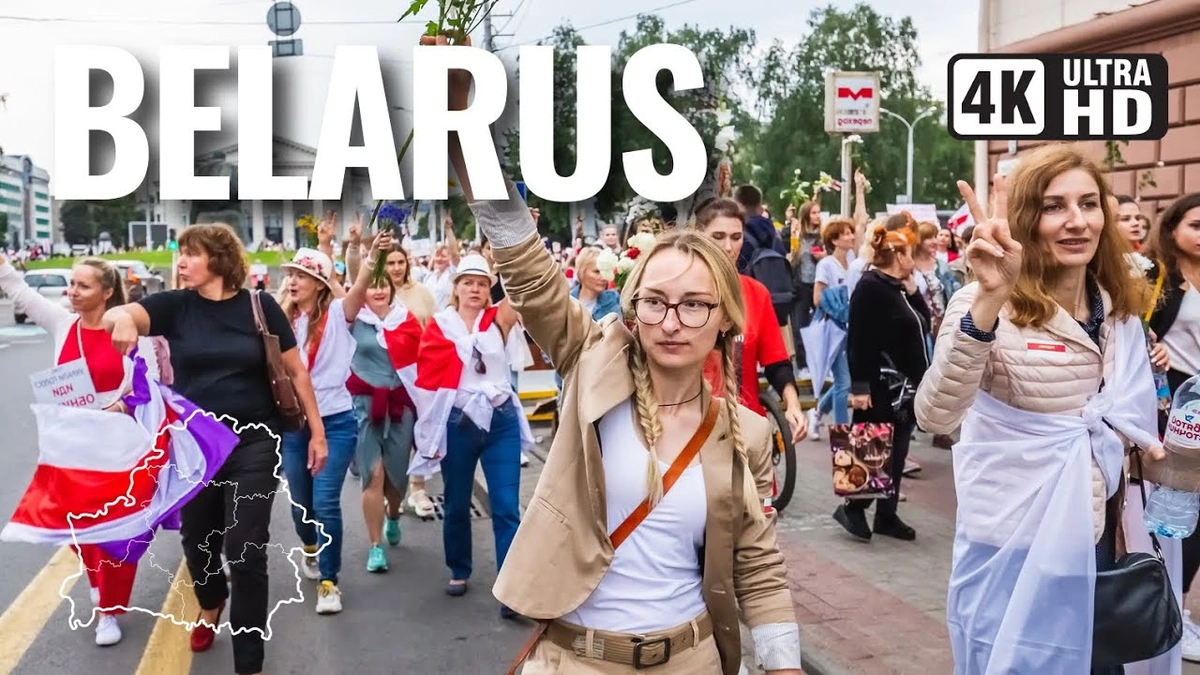Belarus. The name probably conjures up images of, well, probably not much for most Americans. Let’s be honest, it’s a country often relegated to the back pages of international news, usually associated with geopolitical rumblings or overshadowed by its larger neighbors. But here’s the thing: understanding Belarus is more important than you might think, especially in today’s interconnected world. This isn’t just about knowing another country exists; it’s about grasping the “why” behind the headlines and the implications for global stability. I initially thought this was a straightforward analysis, but the more I dug in, the more I realized how nuanced and crucial understanding Belarus actually is.
Why Should Americans Care About Belarus?

Okay, I get it. You’re probably thinking, “I’ve got enough on my plate – why should I care about a landlocked country in Eastern Europe?” But consider this: Belarus is a key player in the region, acting as a buffer (or battleground, depending on who you ask) between Russia and NATO. Its political stability or lack thereof directly impacts the security landscape of Europe. The relationship between Belarus and Russia is a critical piece of the puzzle.
And there’s more. The political situation in Belarus affects international relations, trade, and even migration patterns. What fascinates me is how a relatively small country can have such a disproportionate impact on the world stage. The suppression of political opposition in Belarus , as reported by organizations likeAmnesty International, is an ongoing concern.
The Geopolitical Chessboard | Belarus’s Position
Think of Belarus as a pawn in a high-stakes geopolitical chess game. Its strategic location makes it a crucial transit route for energy and trade between Russia and the European Union. The country’s close ties with Russia – often described as a strategic partnership – have significant implications for regional security. What I find particularly interesting is how Belarus navigates the complex relationships with both Russia and the West. It’s a tightrope walk, to say the least. Plus, understanding Belarus’s geopolitical importance helps contextualize the West’s engagement with the country.
But, let’s be honest, the situation is complicated. According to reports from organizations like theU.S. Department of State, the political climate is complex. This influences how other countries interact with Belarus and what kind of aid or diplomatic solutions they pursue.
The Economic Landscape | More Than Just Potatoes
Belarus’s economy is largely state-controlled, relying heavily on its industrial sector and agricultural production (yes, they do grow a lot of potatoes). The country’s economic ties with Russia are significant, but it is working toward economic diversification and international trade. So, the question is, how sustainable is this economic model in the long run? Moreover, how are Belarus’s economic reforms shaping its future?
The government’s control over major industries raises concerns about competitiveness and innovation, and the reliance on Russia makes Belarus vulnerable to economic fluctuations in its large neighbor. But, like everything else, it’s not just black and white. There are sectors with potential, and the country is actively seeking foreign investment. It’s a country of contradictions, for sure. For example, as mentioned on President Trump Announcement , a country’s economic stability impacts its relationship with other countries.
The Human Side | Life in Belarus Today
Beyond the politics and economics, it’s essential to remember the human element. What’s life actually like for ordinary people in Belarus? What are their hopes, their fears, their daily realities? The answer, of course, is complex and varies greatly. But we need to understand that the everyday citizens of Belarus are affected by the impact of sanctions on Belarus .
While the government provides social services, there are concerns about human rights and freedoms. Many Czech Republic citizens are also facing similar circumstances. The younger generation, in particular, is increasingly connected to the outside world and eager for change. Understanding the aspirations of the Belarusian people is crucial for any meaningful engagement with the country.
I initially thought the country was just all politics and conflicts, but seeing how people are resilient and keep hoping for a better future made me think differently. I started seeing the country as more than just news, but a home to a people who are trying to make a living.
Looking Ahead | The Future of Belarus
So, what does the future hold for Belarus? It’s a question with no easy answers. Will the country continue its close alliance with Russia? Will there be meaningful political reforms? Will the economy diversify and become more resilient? The answers to these questions will have far-reaching consequences, not just for Belarus but for the entire region. The importance of Belarus’s relationship with the EU cannot be understated.
But, here’s the bottom line: Belarus matters. It’s not just another country on a map. It’s a critical piece of the puzzle in understanding the complex geopolitical landscape of Eastern Europe. And, the next time you see a headline about Belarus, you’ll hopefully have a deeper understanding of the “why” behind the news.
FAQ About Belarus
What is Belarus known for?
Belarus is known for its Soviet-era architecture, vast forests, and strong industrial sector.
What is the main language spoken in Belarus?
The main languages spoken in Belarus are Belarusian and Russian.
What are the main industries in Belarus?
Key industries include manufacturing, agriculture, and forestry.
Is Belarus a safe country to visit?
While Belarus generally has a low crime rate, it’s essential to be aware of the political situation and any potential risks.
What if I want to learn more about Belarus’s foreign policy ?
The Ministry of Foreign Affairs of Belarus website contains up-to-date information about the nation’s foreign policy.
What are the most pressing Belarus political issues?
The suppression of the political opposition and human rights are the main concerns for Belarus.




